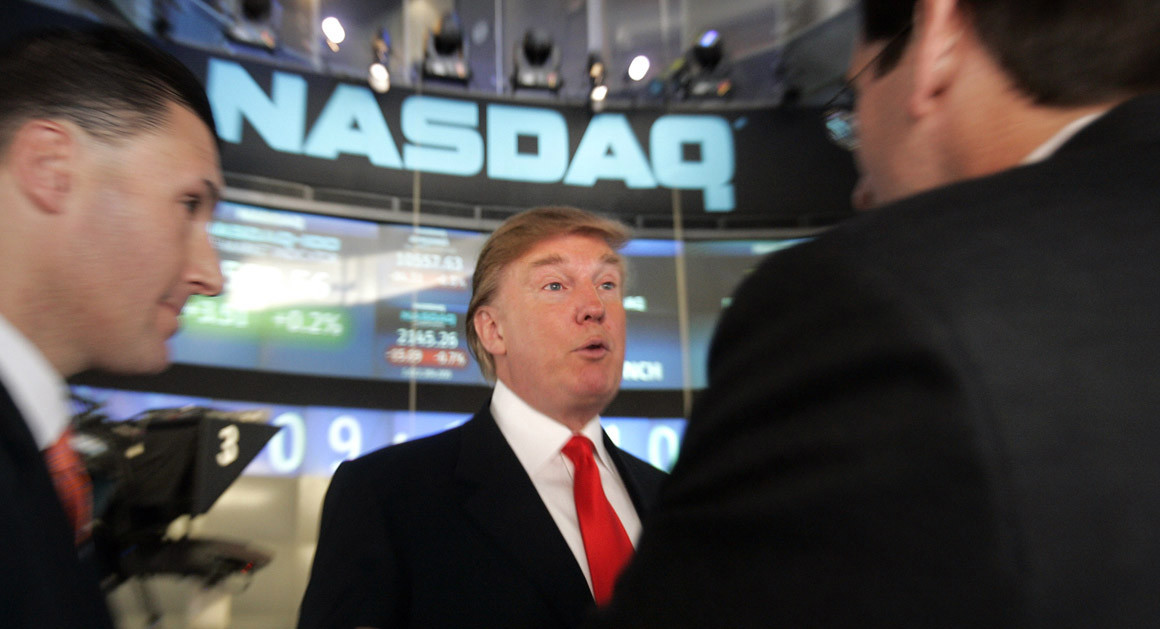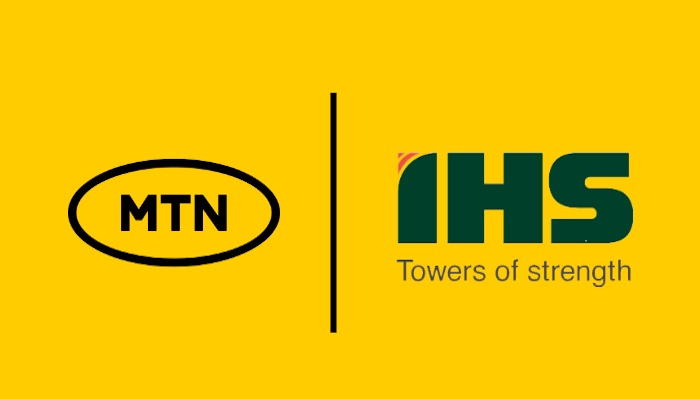Economy
Upward Momentum May Lead to Continued Strength on Wall Street

By Investors Hub
The major U.S. index futures are pointing to a higher opening on Tuesday, with stocks likely to extend the upward trend seen in recent sessions.
The markets may benefit from recent upward momentum, which has helped the major averages close higher for three consecutive sessions.
The recent advance by stocks comes despite lingering concerns about a global trade war as tariffs on billions of dollars of U.S. and Chinese goods are set to take effect later this week.
Signs of continued strength in the U.S. economy despite the ongoing trade disputes may be inspiring traders to pick up stocks.
Trading activity is likely to remain relatively subdued, however, as the markets are due to close earlier than normal ahead of the July 4th holiday.
Following the holiday, traders are likely to keep a close eye on the minutes of the latest Federal Reserve meeting as well as the Labor Department?s monthly jobs report.
After coming under pressure early in the session, stocks showed a significant turnaround over the course of the trading day on Monday. The major averages climbed well off their lows of the session and into positive territory.
The major averages all closed higher, with the Nasdaq outperforming its counterparts. While the Nasdaq advanced 57.38 points or 0.8 percent to 7,567.69, the Dow edged up 35.77 points or 0.2 percent to 24,307.18 and the S&P 500 rose 8.34 points or 0.3 percent to 2,726.71.
The rebound on Wall Street came following the release of a report from the Institute for Supply management showing growth in U.S. manufacturing activity unexpectedly accelerated in the month of June.
The ISM said its purchasing managers index climbed to 60.2 in June after rising to 58.7 in May, with a reading above 50 indicating growth in manufacturing activity. Economists had expected the index to edge down to 58.4.
“The increase in the ISM manufacturing index in June is a clear sign that, for now at least, the strength of the domestic economy is more than offsetting any increased uncertainty on trade policy,” said Michael Pearce, Senior U.S. Economist at Capital Economics.
He added, “However, with the dollar appreciating by 6% since April, global growth slowing and retaliatory tariffs just beginning to bite, the sector looks unlikely to fare so well for long.”
Stocks initially moved lower on lingering trade concerns as tariffs on $34 billion worth of Chinese imports to the U.S. and a matching $34 billion worth of U.S. exports to China are due to take effect on July 6th.
Adding to the concerns, news website Axios obtained a leaked draft of bill ordered by President Donald Trump that would declare America’s abandonment of fundamental World Trade Organization rules.
The bill, known as the United States Fair and Reciprocal Tariff Act, essentially provides Trump a license to raise U.S. tariffs at will, without congressional consent, Axios said.
“It would be the equivalent of walking away from the WTO and our commitments there without us actually notifying our withdrawal,” a source familiar with the bill told Axios.
Nonetheless, the source noted Congress would never give the president the authority, and a White House spokeswoman told Axios the administration does not have actual legislation it is preparing to rollout.
A previous report from Axios said Trump has repeatedly told top White House officials he wants to withdraw the United States from the World Trade Organization.
Additionally, the European Commission has warned the Trump administration that imposing tariffs on cars imported from Europe will harm trade, growth and jobs in the U.S. and abroad.
Overall trading activity was somewhat subdued, however, with the upcoming July 4th holiday keeping some traders on the sidelines.
Later this week, trading may be impacted by reaction to the Labor Department’s monthly jobs report and the minutes of the latest Federal Reserve meeting.
Computer hardware stocks showed a strong move to the upside on the day, contributing to the advance by the tech-heavy Nasdaq. Reflecting the strength in the hardware sector, the NYSE Arca Computer Hardware Index climbed 1.3 percent.
Notable strength also emerged among transportation and biotechnology stocks, with the Dow Jones Transportation Average and the NYSE Arca Biotechnology Index both rising by 1 percent.
On the other hand, substantial weakness remained visible among oil service stocks, as reflected by the 3 percent slump by the Philadelphia Oil Service Index.
Other energy stocks also moved to the downside, with the NYSE Arca Oil Index and the NYSE Arca Natural Gas Index falling by 1.4 percent and 1.3 percent, respectively.
Economy
Naira Trades N1,390/$1 at Parallel Market, N1,335/$1 at Official Market

By Adedapo Adesanya
It was another wonderful day for the Nigerian Naira in the different segments of the foreign market (FX) market on Tuesday, February 17, as it appreciated against the United States Dollar at the close of business.
In the parallel market, it improved its value on the greenback by N30 to sell for N1,390/$1 compared with the previous day’s rate of N1,420/$1, and at the GTBank forex desk, it gained N4 to trade at N1,363/$1 versus the preceding session’s N1,367/$1.
As for the official market, which is known as the Nigerian Autonomous Foreign Exchange Market (NAFEX), the local currency gained N11.82 or 0.88 per cent to close at N1,335.96/$1 versus Monday’s price of N1,347.78/$1.
In the same segment of the market, the domestic currency chalked up N32.43 against the Pound Sterling to finish at N1,806.75/£1 compared with the previous day’s N1,839.18/£1, and gained N18.82 on the Euro to close at N1,579.24/€1 compared with the N1,598.06/€1 it was traded a day earlier.
Improved foreign exchange supply levels following recent high demand pressures helped to sustain the currency’s advance. A portion of the delayed demand was eliminated with licensed Bureau De Change (BDC) businesses fully helping to alleviate any development.
While other supply sources, including exporters, non-bank corporations, and other market actors, pause stoked pressures on the exchange rate, their presence is anticipated to increase liquidity and flow.
Foreign reserves were last reported at $47.80 billion after appreciating by $135.75 million. The build-up in reserves has been supported by favourable external conditions, including stronger oil-related inflows and improved FX market stability.
The market is looking forward to a rate cut when the Monetary Policy Committee (MPC) meets next week after inflation decelerated further to 15.10 per cent.
Meanwhile, the cryptocurrency market was down as software stocks continued to plunge, creating a ripple effect on the digital assets.
Market analysts noted that consolidation is expected as crypto searches for a new narrative strong enough to pull capital back from AI stocks and commodities.
Litecoin (LTC) declined by 1.8 per cent to $53.99, Bitcoin decreased by 1.7 per cent to $67,446.46, Cardano (ADA) dropped 1.5 per cent to trade at $0.2810, Binance Coin (BNB) slumped 1.4 per cent to $617.60, Solana (SOL) depreciated by 0.9 per cent to $84.97, Ripple (XRP) shrank by 0.7 per cent to $1.47, and Dogecoin (DOGE) went down by 0.04 per cent to $0.1005.
On the flip side, Ethereum (ETH) appreciated by 0.2 per cent to $1,992.22, while the US Dollar Tether (USDT) and the US Dollar Coin (USDC) remained unchanged at $1.00 apiece.
Economy
Oil Dips 2% Amid Progress in US-Iran Nuclear Talks

By Adedapo Adesanya
Oil was down by about 2 per cent on Tuesday on hopes tensions between the United States and Iran were easing after Iran’s foreign minister said the countries had reached an understanding regarding nuclear talks.
Brent futures fell $1.23 or 1.8 per cent to $67.42 a barrel, and the US West Texas Intermediate (WTI) futures slipped 56 cents or 0.9 per cent to $62.33 per barrel.
According to Iranian Foreign Minister, Mr Abbas Araqchi, his country and the United States reached an understanding on the main “guiding principles” in a second round of indirect talks in Geneva, Switzerland, over their nuclear dispute on Tuesday.
However, this does not mean a deal is imminent.
Iran’s supreme leader said on Tuesday that any US attempt to depose his government would fail as the US continued a military buildup exercise in the Middle East.
Iran will close parts of the critical oil shipping lane in the Middle East, the Strait of Hormuz, for a few hours on Tuesday as it is conducting military drills in the area. The government said the partial closure is due to security precautions.
The Strait of Hormuz, the narrow lane between Iran and Oman, is the world’s most critical oil transit chokepoint, and the oil market has time and again feared Iran could attempt to close the lane. In 2024, oil flow through the strait averaged 20 million barrels per day, or the equivalent of about 20 per cent of global petroleum liquids consumption.
Iran and fellow Organisation of the Petroleum Exporting Countries (OPEC) members Saudi Arabia, United Arab Emirates, Kuwait and Iraq export most of their crude via the Strait, mainly to Asia.
Negotiators from Ukraine and Russia concluded the first of two days of US-mediated peace talks in Geneva on Tuesday, with US President Donald Trump pressing Ukraine to act fast to reach a deal to end the four-year conflict.
Meanwhile, Ukraine continued its attacks on Russian energy infrastructure. Its military said on Tuesday it struck the Ilsky refinery, while a drone attack was also reported at the port of Taman.
A peace resolution could see a lifting of sanctions on Russia, bringing Russian oil back to the mainstream market. In 2025, Russia was the third-biggest crude producer in the world behind the United States and Saudi Arabia.
Economy
MTN Reaches $6.2bn Deal to Fully Own IHS Towers

By Adedapo Adesanya
MTN Group has agreed to take full control of IHS Holding, buying the roughly 75 per cent stake it does not already own in a deal that values the tower operator at about $6.2 billion.
According to a statement, MTN, which is Africa’s biggest mobile operator, will pay $8.50 per share in cash.
The deal will be funded through the rollover of MTN’s existing stake of around 24% in IHS, as well as about $1.1 billion in cash from MTN, roughly $1.1 billion from IHS’s balance sheet, and the rollover of no more than existing IHS debt.
The offer represents a 239 per cent premium to the company’s share price when it announced a strategic review on March 12, 2024, a 36 per cent premium to its 52-week volume-weighted average price as of February 4, 2026, and a three per cent premium to its unaffected closing price of $8.23 on that same date.
The transaction will see MTN transition from being a minority shareholder in IHS to a full owner. Upon completion, IHS will delist from the New York Stock Exchange and become a wholly owned subsidiary of MTN.
For MTN, the deal represents a decisive shift as data demand surges and digital infrastructure becomes increasingly strategic with a booming digitally-oriented youth population on the continent.
Over the past decade, many African telecom operators sold tower assets to independent infrastructure firms to unlock capital and reduce balance sheet pressure. This marks a reversal of the trend.
MTN itself had reduced its direct exposure to tower ownership, retaining a roughly 24 per cent fully diluted stake in IHS before the agreement.
Speaking on this, Mr Ralph Mupita, group president and CEO, MTN Group, described the proposed acquisition as a pivotal step in strengthening MTN’s strategic and financial position in a future where digital infrastructure will be central to Africa’s development.
He said the deal would enhance MTN’s ability to partner with governments and support long-term connectivity growth across its markets.
“This proposed transaction is a pivotal step in further strengthening MTN Group’s strategic and financial position for a future where digital infrastructure will become ever more essential to Africa’s growth and development,” he said.
The board of IHS unanimously approved the agreement and recommended that shareholders vote in favor.
MTN has committed to vote all its shares in support of the deal, while long-term shareholder Wendel has also issued a letter backing the transaction. Together, they account for more than 40 per cent of shareholder support already secured.
On his part, Mr Sam Darwish, chairman and CEO of IHS, said the agreement offers shareholders certainty and immediate value realisation following a strategic review launched during a period of macroeconomic and geopolitical volatility across key markets.
Founded 25 years ago with a single tower in one market, IHS grew into one of the world’s largest independent tower companies by count, operating in 11 countries and managing approximately 40,000 towers at its peak.
If completed, the acquisition will create the largest standalone and integrated tower company in Africa under MTN’s control, tightening the alignment between network operations and physical infrastructure in a region where connectivity remains both a commercial battleground and a development imperative.
-

 Feature/OPED6 years ago
Feature/OPED6 years agoDavos was Different this year
-
Travel/Tourism10 years ago
Lagos Seals Western Lodge Hotel In Ikorodu
-

 Showbiz3 years ago
Showbiz3 years agoEstranged Lover Releases Videos of Empress Njamah Bathing
-

 Banking8 years ago
Banking8 years agoSort Codes of GTBank Branches in Nigeria
-

 Economy3 years ago
Economy3 years agoSubsidy Removal: CNG at N130 Per Litre Cheaper Than Petrol—IPMAN
-

 Banking3 years ago
Banking3 years agoSort Codes of UBA Branches in Nigeria
-

 Banking3 years ago
Banking3 years agoFirst Bank Announces Planned Downtime
-

 Sports3 years ago
Sports3 years agoHighest Paid Nigerian Footballer – How Much Do Nigerian Footballers Earn












